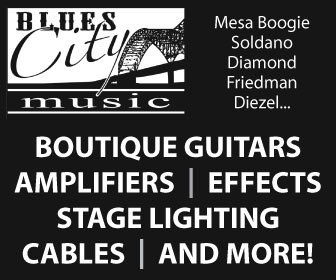My Dining Room
Meet Your Favorite Artists In Your Own Home
For today's musician, playing out isn't easy. Making contacts among club owners and others in the industry while growing a fan base is just part of what a band has to do in order to eventually play out in front of bigger audiences at larger venues. Many club owners are non-receptive to their efforts and "outside help" is needed.
This could be from fans close to them, who form groups such as street teams who go to clubs and pass out fliers and other promotional material for the band.
Another form of "outside help" is the house concert. Fans of music have decided that rather than go out to see music, they bring the music to them. This idea has become effective in providing national musicians with a side-stop before hitting a big club while on tour, and bands with an alternative to the burdens of their local club scene.
Chorus and Verse recently asked Ira Rosen, a Highland Park, New Jersey native, about the pop shows he's run in his own dining room, which have included artists like Rialto and the Rosenbergs.
My Dining Room, as Rosen calls it, played host to a Jersey Jams, Jersey Cares benefit on Dec. 22 featuring Logs in the Mainstream, the Grip Weeds, the Alice Project, and the Headquarters. Jersey Jams, Jersey Cares, founded by East Brunswick music writer Bob Makin, is made up of local musicians who play shows and have recorded a compact disc in an effort to raise money to fight and heal the effects of the terrorist attacks of September 11th.
How did you get become involved with having concerts [in] your home?
In early 2000, it came to our attention that Pat DiNizio, lead singer and songwriter for the Smithereens, was not only running for Senate in NJ [on the Reform Party ticket], but was also touring the country, playing shows in people's homes." both to raise money for his campaign, and to get closer to the fan base for whom he'd been playing for 20 years.
My wife indulged me, and allowed me to bring him in for a show in our home. It went so well, that I was allowed to put out feelers to other bands to see if they'd be willing to play in our "venue". When the positive responses started coming in, we purchased some equipment to supplement the things we already owned, and started running shows on an irregular basis.
Can you explain to me the process of a house concert? Where in your house are the concerts held? How does it differ from a club and coffee shop concert? How does it compare to the two?
In many ways, the show is like a standard, two-set club gig. However, the atmosphere is rather different. The audience is there to hear the music, and tends to pay closer attention than a club crowd.
In addition, the informal environment makes it more comfortable for entire families to enjoy the music, rather than the more uniform over-21 club crowd. There are children running in and out, people talking in the living room, hanging out on the deck and occasionally dancing in the kitchen. As we do electric shows in our home, the volume is considerably louder than a coffee house, and with all of the informality, there's more noise from the audience, too.
Our shows have the bands playing in the dining room, which opens into the rest of the first floor of our home, the kitchen and living room. In addition, the room opens onto our deck.
Finally, the fact that there is a break between sets, and we try to have everyone stay for dinner, allows for real interaction between the audience and the musicians - more than just a shouted "great set" as one might yell at a band during the following set at a club.
Who are some artists who have played at your house? What are some of the best shows you have had?
Our family's favorite show was put on by the Bobs. We didn't expect that they'd say yes, but they did, and the show was magnificent. It was also nice that one of the members grew up in Edison, so her mom came.
Other artists that have played include the Rosenbergs, Rialto, Richard X. Heyman, The Cucumbers, and our "neighbors" the Grip Weeds.
Do you tend to make a good amount of money from it? How is the money dispersed between you and the artist?
We typically lose money on our shows, but not really more than an evening out in the city for a show and dinner. It's a reasonable price to pay for great entertainment, in a very comfortable environment, on our own terms.
First and foremost, we're fans. What fan wouldn't open his or her house to a performer whom he or she liked, given the opportunity to do so?
We always agree with the artist on a guarantee - any risk, or benefit, based upon a bad or good crowd is ours. Our losing money is based upon the combined cost of paying the artist and feeding all those in attendance.
How did you become involved with Jersey Jams, Jersey Cares?
Bob Makin had heard about our shows, and emailed me to ask if we'd be willing to host one of their benefit shows. Hmm. Great music, great cause, and I need only walk downstairs to be a part of it. I'd have been crazy to say no.
How do you plan to help its cause? How do you feel about the organization's efforts?
I think the efforts are noble. I know how much music means to my family, so I can relate to the potential of losing that music from my life.
We'd be happy to continue support the cause with shows both at our home, and at the home of my brother in north Jersey. We're hoping for an acoustic show at his home next year.
How [do] your concerts provide artists with an alternative from dealing with clubs and other venues?
First, our shows are always Sunday afternoons. They include a family-focused environment, as well as food and drinks. Second, the informal atmosphere allows the artist to be more relaxed. Stage personas tend to dissolve and real people relate to other real people, either as performer and audience or sharing hamburgers after the music. Third, though the audience may be smaller than one at a club, it is far more appreciative of the artist's efforts.
I can illustrate this in the following manner: At our most recent show, we had nine artists play as a warm-up for the NY International Pop Overthrow. It was an extra showcase for the bands, and no one was paid. At one point, I ran out of beer, and had to run out between sets. One of the bands that had already played, I had just met them for the first time that day, found out what I was doing, and handed me money to help pay for beer.
Only in this kind of informal, communal atmosphere would this occur.
[ Web site: www.mydiningroom.com ]

Josh Davidson has written music feature articles for Jersey Style and served as the Jersey Shore rock columnist for Steppin' Out Magazine. Other music writing credits include Aquarian Weekly, Jersey Beat, Backstreets and njcoast.com. He has written free-lance for the Asbury Park Press' Community Sports section and has written featured articles for its news section, as well as covering campus news and sports weekly for the Signal, the College of New Jersey's (formerly Trenton State College) student newspaper. He has worked as a staff writer for The Independent, and his work for Greater Media Newspapers has also been published in the News Transcript. He is a former beat reporter for the Ocean County Observer who presently is a news writer for Symbolic Systems Inc. supporting the US Army's Knowledge Center. His music writing covers a vast range of topics, from the current cover band craze, highs and lows of the original scene, to the early days of the Jersey Shore rock scene in Asbury Park. He is also a musician, having written hundreds of songs as a singer/songwriter, and playing them out as a solo/acoustic artist. He has also played with cover bands, including It Doesn't Matter, and several original bands, including as the guitarist for the solo project of singer/songwriter Dave Eric. He continues to work on solo material and is presently the guitar player for Jersey Breeze.









